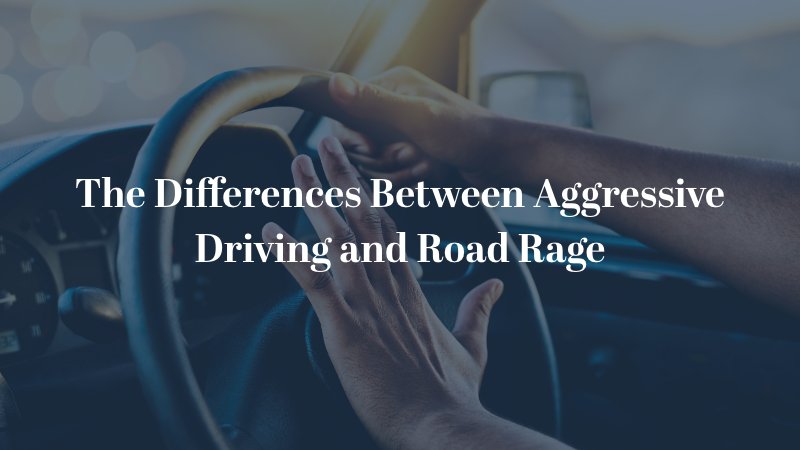
Understanding the distinctions between aggressive driving and road rage is crucial for both drivers and personal injury victims. Identifying whether an incident involves one or both of these behaviors can be a critical distinction in personal injury cases, as each carries different legal implications and liabilities.
Aggressive driving might result in traffic citations or fines, while road rage can lead to severe criminal charges, including assault or reckless endangerment. For victims of personal injury, distinguishing between these behaviors ensures the appropriate legal approach, potentially influencing the outcome of their claims and the compensation they may receive.
Definition of Aggressive Driving
Aggressive driving encompasses a range of dangerous behaviors exhibited by drivers that endangers other persons or property. Some common examples include:
- Speeding: Driving at speeds significantly above the posted limits, endangering both the driver and others on the road.
- Tailgating: Following another vehicle too closely, which reduces the time available to react to sudden stops.
- Erratic Lane Changes: Frequently switching lanes without signaling or checking blind spots.
Definition of Road Rage
Road rage is an extreme form of aggressive driving behavior and can lead to actions that are classified as criminal offenses. It involves hostile actions targeted at other drivers, typically driven by anger or frustration. Unlike aggressive driving, which includes traffic violations, road rage involves intentional acts with the aim of intimidating or harming others. Common examples include:
- Yelling: Shouting obscenities or threats at other drivers, often through open windows.
- Gesturing: Using rude or obscene hand gestures to express anger or frustration.
- Purposely Obstructing Other Vehicles: Deliberately blocking another vehicle’s path.
- Brake Checking: Suddenly slamming on the brakes to startle or intimidate other drivers or to attempt to get them to rear-end your vehicle.
- Exiting the Vehicle: Physically confronting other drivers by leaving the vehicle.
- Physical Assault: Engaging in physical confrontations or attacks that escalate from traffic disputes.
Understanding these definitions and behaviors is essential for identifying risks on the road and for legal professionals handling personal injury claims.
Aggressive Driving and Liability
Aggressive driving significantly impacts liability in personal injury claims. When a driver engaged in aggressive behavior causes an accident, they are often found to be at fault for the resulting damages. Actions such as speeding, tailgating, and erratic lane changes are clear violations of traffic laws and are used to establish negligence. Insurance companies and courts carefully examine these behaviors to determine the culpability of the driver, often leading to compensation for the victim due to the evident negligence.
Road Rage and Compensation
Road rage escalates the level of liability and can result in more severe penalties and higher compensation for victims. Since road rage involves intentional and malicious actions, it could be classified beyond mere negligence and can lead to punitive damages. Victims of road rage incidents often receive compensation not only for physical injuries but also for emotional distress and psychological trauma.
Importance of Documenting Behavior for Legal Purposes
Proper documentation of aggressive driving and road rage behaviors is crucial for personal injury cases. Individuals involved in incidents should gather as much evidence as possible, including witness contact information, video recordings, and photographs. Police reports and medical records also serve as vital documentation that can substantiate claims.
This evidence helps legal professionals build a strong case by clearly illustrating the extent of the aggressive behavior and its impact on the victim.
If you have questions or need help after an accident caused by someone else’s aggressive driving or road rage, contact a Washington D.C. car accident attorney today to schedule a free consultation.